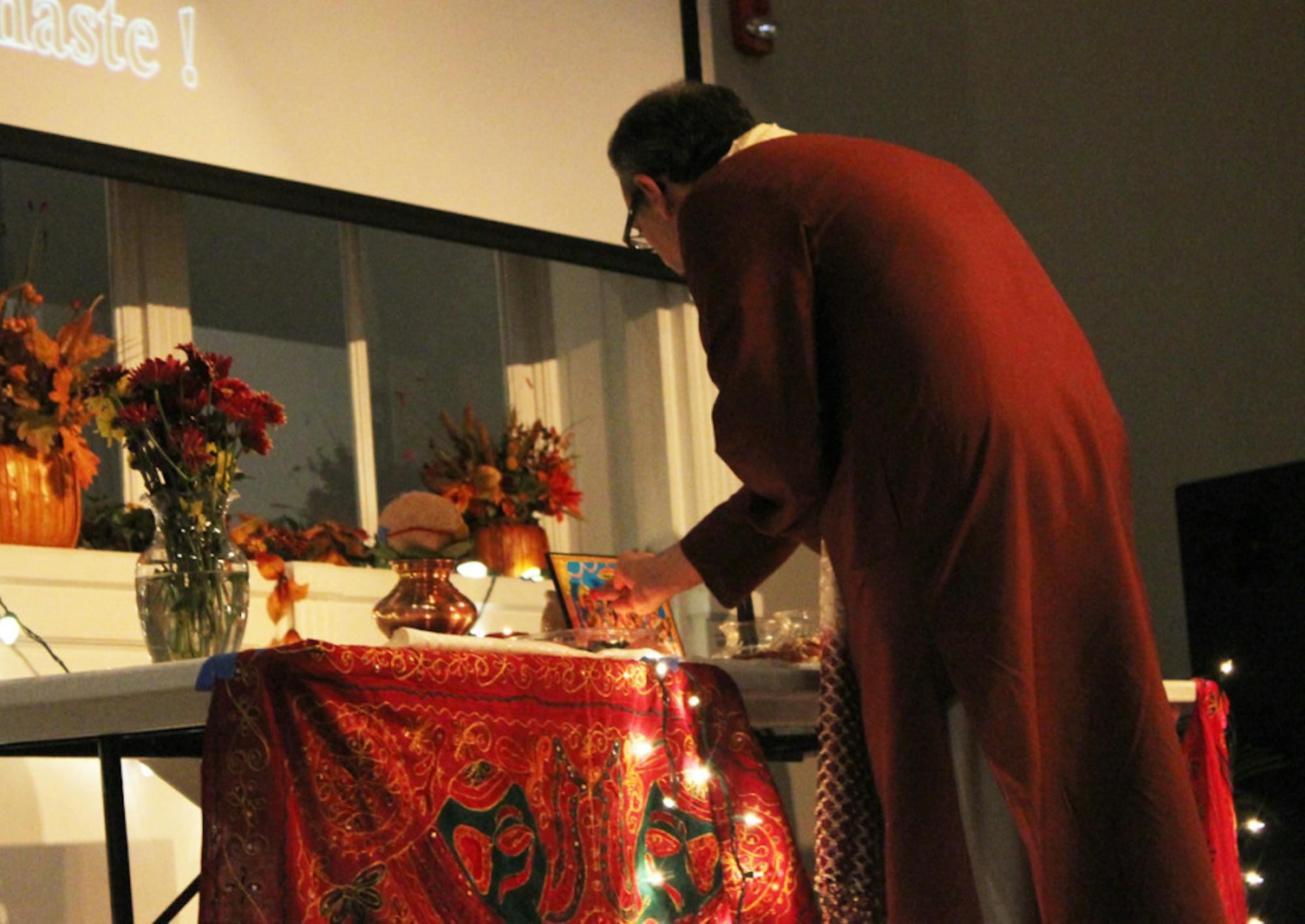Campus Ministry, along with the Indian Association of Notre Dame, the Graduate Student Union and International Student Services and Activities, hosted a Diwali festival celebration Sunday in LaFortune Ballroom as part of the Prayer from Around the World series.
Diwali, a major Hindu festival which celebrates the triumph of good over evil, light over dark and knowledge over darkness, recognizes the return of Lord Rama, an incarnation of the Hindu god Vishnu, from a 14-year exile and the banishment of the demon Ravana, according to the Notre Dame website.
“About 10 years ago, at the initiative of students, Campus Ministry started the series, offering the opportunities for various faith traditions to share their forms of praying with the campus communities,” Wong said.
Nishant Singh, graduate co-president of the Indian Association of Notre Dame (IAND), said Diwali is one of the biggest events on the Hindu calendar, although different sects of Hinduism celebrate it for different reasons.
“Diwali is the most ancient of Hindu festivals," Singh said. "It is based on the Ramayana, in which Lord Rama returns from his exile and finds that Ravana has abducted his wife.
"He has a massive battle with Ravana, and after he wins the battle, he returns home. The people celebrated his return by lighting every room in every house, filling the city with light."
In Hindu homes around the world, Diwali – named the festival of lights – is celebrated by lighting oil lamps, candles and all the lights in the house, bursting firecrackers and fireworks, saying prayers to many of the Hindu deities and inviting many people over for dinner and sweets, Singh said. Diwali is celebrated in the fall season after the monsoon and during the harvest, and it also marks the beginning of a new year.
“I am always reminded of Diwali during Halloween because as a child I would go around to my neighbors' houses and eat candies and sweets during the Diwali festival,” Singh said. “But Diwali is much bigger than Halloween. It is like Thanksgiving, Christmas and New Years combined into one.”
Despite not being Hindu, Wong said she and her family still take part in Diwali celebrations.
“My son was friends with some Hindu boys when he was growing up so he always went over to their house for Diwali to celebrate with his friends," Wong said. "My daughter also married a Hindu so although I am not Hindu, Diwali is a very important time for me."
The celebration on Sunday began with prayers, called puja, that were offered to the gods by graduate students Shailaja Kunda and Rashi Talwar. The prayers were concluded with a traditional closing song, called the aarti. After the aarti, guests were invited to a dinner of traditional Indian cuisine.
“The meal, much like the festival, is heavily based on color," Singh said. "Each different color represents a different god, and we invite the gods to sit upon the food and join us during the festival."
After the meal, the festival concluded with dancing to Indian songs.













